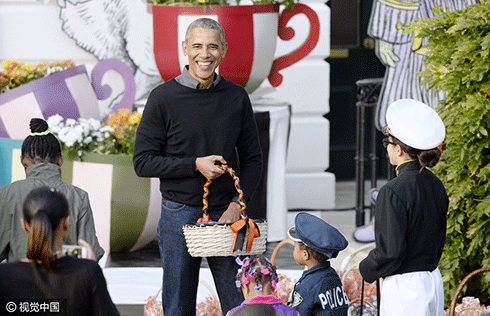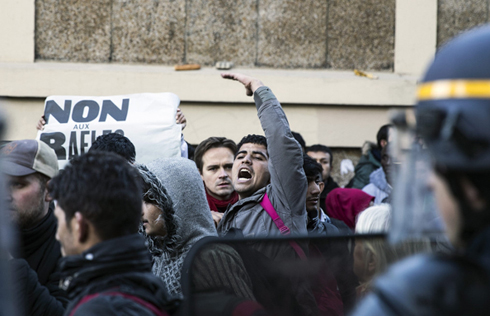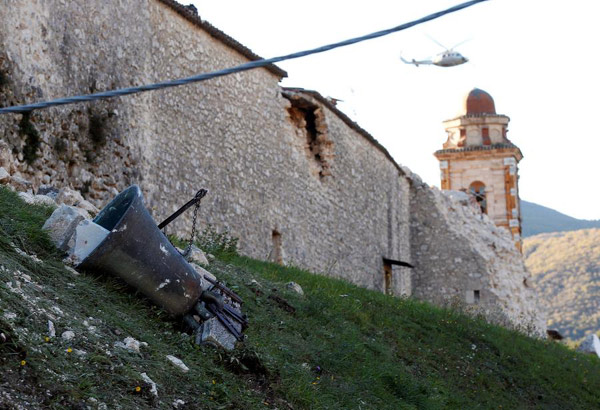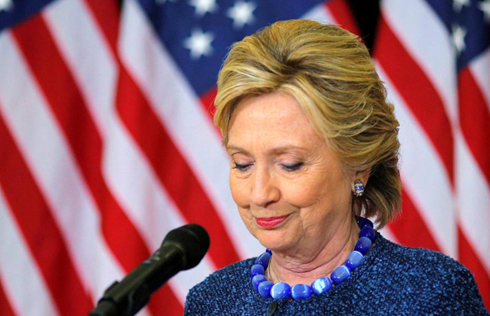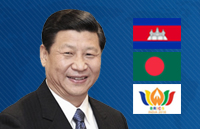Myanmar, Kachin rebels agree to hold peace talks in China
![Kachin rebels guard an outpost on the Law Hpyu hilltop, one of the last outposts defending Laiza, in northern Myanmar's Kachin-controlled region on Thursday. [ALEXANDER F. YUAN / ASSOCIATED PRESS] Myanmar, Kachin rebels agree to hold peace talks in China](../../images/attachement/jpg/site1/20130204/00221917dead12792f1a05.jpg) |
|
Kachin rebels guard an outpost on the Law Hpyu hilltop, one of the last outposts defending Laiza, in northern Myanmar's Kachin-controlled region on Thursday. [ALEXANDER F. YUAN / ASSOCIATED PRESS] |
Myanmar's government and ethnic Kachin rebels have said they will hold peace talks in China in the coming days after some of the worst fighting between the two in years.
The meeting will be held in the Chinese border town of Ruili, which has seen three rounds of talks since a 17-year cease-fire between them broke down in June 2011.
The Chinese government "will take a role as a witness and mediate during the meeting", said the Kachin Independence Army on Saturday, urging "the Kachin community, our friends and supporters around the world to pray for our leaders".
Observers said China, which was directly affected by its neighbor's conflicts when four bombs landed on Chinese soil recently, is going to play a constructive role in the meeting in an effort to find a breakthrough in tensions.
The recent fighting has involved the use of fighter jets and helicopter gunships.
The bombs that landed in China caused no casualties, but the conflict has affected the lives of those living nearby, as well as trade across the border.
Beijing representatives have already met with counterparts in Myanmar, urging the government to agree to a cease-fire and take measures to ensure peace and security are maintained on the border between the two countries.
Various senior officials, including Vice-Minister of Foreign Affairs Fu Ying and Deputy Chief of the General Staff of the People's Liberation Army Qi Jianguo, visited Myanmar in January.
Zhang Xuegang, an expert on Southeast Asian studies at the China Institute of Contemporary International Relations, said Beijing's mediation — based on the mutual respect of both Myanmar's government and local rebel groups — will act as an influential force to avoid any reverse in progress made during previous negotiations, and did not go against its core foreign policy of non-interference.
Qi Jianguo, a former Chinese ambassador to Vietnam, who is no relation to the deputy chief of the general staff of the PLA, added that both Myanmar's government and the KIA would welcome China's mediation, but that it was difficult for either of them to soften stances overnight.
The two sides have met at least eight times but failed to agree on terms for a lasting truce.
The Myanmar government's priority is a cease-fire, which the KIA has refused until concrete political terms are offered.
Shortly after the government announced a unilateral cease-fire on Jan 18, the KIA accused Myanmar troops of attacking northeast Kachin.
In an announcement on state-owned MRTV on Friday, the government said it was preparing to hold talks with the KIA and its political arm, the Kachin Independence Organization, with other ethnic minority groups that had already agreed truces helping to facilitate the dialogue.
The Kachin, like Myanmar's many other ethnic minority groups, have long sought greater autonomy from the central government.
Myanmar has agreed to cease-fires with 10 groups since late 2011, leaving the conflict with the KIA as the only one still unresolved.
Zhang said a truce with the KIA would "substantially" improve the government's reconciliation with all the ethnic minority groups, while solidifying ongoing reforms by President U Thein Sein's administration, which would in turn improve the prosperity of the Mekong subregion.
Reuters and AP contributed to this story.
Contact the writer at zhaoshengnan@chinadaily.com.cn




